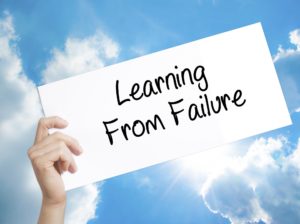 What I’m about to share with you could dramatically increase your win rate or batting average, across all the marketing campaigns you run…
What I’m about to share with you could dramatically increase your win rate or batting average, across all the marketing campaigns you run…
As I’m pretty sure I’ve shared before, my word for the year 2018 is PROCESS.
That is, I’m working on as many processes within my business as possible, to improve my personal performance across the board. Plus, to allow me to scale through automation, outsourcing, and even bringing on new team members.
It’s in this context that I was reviewing a checklist I made way back in 2014. It’s the process I go through to complete every client project. Broken out into steps, and put on paper.
I was actually loading it into Trello. And as I did so, I was looking for areas to optimize.
Which brings me to the point of this essay.
Near the very end of the process, I talk about reviewing results…
One term for this is a postmortem.
Which basically means determining the cause of death, after death happens.
We don’t tend to do this on winning campaigns. We tend to gloat, to enjoy our win, and to revel in the spoils of victory. We should absolutely do it every time we win though, to ask ourselves WHY we won, and how we could do even better. (Including optimizing the current winning campaign, if relevant.)
When something fails though, we almost always do a postmortem. Our marketing campaign didn’t do well? Why? Where did we lose people? Did we get enough page visits? How long did visitors stay on the page? If a video, how long did they watch and were there any big drop-off points? Did they click through to the order form? What was the conversion rate there? If a more sophisticated campaign, how did the upsells and downsells perform? What were the open rates and clickthroughs on each email? And so on, and so on…
We’re always looking for points of failure after a campaign doesn’t work.
This is especially useful if it showed some signs of life and could be tested again after edits, to potentially turn a loser into a winner.
Now here’s where we get to my epiphany today…
Nearly every time I get to a postmortem on a campaign, I see incredibly obvious errors — and I wish I’d done the review sooner!
Yes, when I write copy, I spend an inordinate amount of time editing and reviewing the copy, prior to it going out.
Plus, the client reviews it, and occasionally there are peer reviews, too.
All of that is well and good, but those are always done with a certain mindset: “We want this to succeed on the first time out, how can we make sure it does so?”
That’s valuable — and my win ratio on client work suggests I’m pretty good at answering that question.
And yet…
Sometimes even that is not enough to stop a flop, and so I’m left thinking I should have done a postmortem — assuming it failed — BEFORE the campaign ever went live.
You may have heard of this as a premortem.
It’s a mindset shift.
And it may seem subtle.
But I promise you, this is powerful.
Let’s play an imagination game…
Let’s zoom in near the end of your project. You’ve written the sales letter or VSL script, or other core persuasive message.
You’ve gone through all your standard edits.
It’s a near-final draft, that you’d basically be comfortable testing as-is.
Now stop.
Put on your magic imagination hat, and imagine yourself into the future. Imagine that you’ve just tested this. Imagine you got the results back, and it failed.
Now, inside this imagined scenario, ask yourself:
— Why did it fail?
— What could you have done differently?
— What are the now-obvious reasons for the failure?
— What would have shifted the odds of success dramatically in your favor?
Then, bring yourself back to the present, looking at this near-final draft of copy. What does that tell you that you must do to the promotion, prior to launching it, to further reduce the chances of failure, and increase the likelihood of a big winner?
They say hindsight is 20/20 — this “hack” gives you future-hindsight to prevent failures before they happen!
It almost always seems crystal clear to us why we failed, AFTER we do it.
This little game of the imagination is a great way to tap into that power of your mind, prior to actually failing.
And you know what? It’s proven.
There was a 2007 article in Harvard Business Review that discussed the power of a premortem.
And it cited previous research that found simply imagining an event has already occurred improved participants ability to correctly identify reasons for future outcomes by 30%.
Or, in plain English…
If you look into the future and imagine why something might happen, you might identify 10 reasons.
If you imagine yourself looking back on something, and asking why it happened, you’ll identify 13 reasons.
That’s 3 potential failure points you can fix BEFORE you fail, with a simple trick of the imagination!
And considering that any ONE of those could be the difference between a win and a loss, a bomb and a breakthrough, a crash and a control…
This seems like a breakthrough addition to the project process!
Yours for bigger breakthroughs,
Roy Furr



